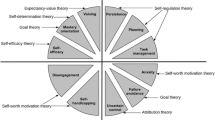Abstract
Based on the article “Participation and Reification: Two Basic Design Principles for Mathematics Professional Development Programs” (Gómez-Blancarte & Miranda, 2021), this commentary aims to discuss how Wenger’s concepts of participation and reification may be used in the design of a MPDP. The meanings of participation and reification and how their dialectical relation was applied and reflected in the MPDP design. Several related applications to participation and reification are discussed and three aspects are proposed for future studies.
Résumé
S’inspirant de l’article intitulé « Participation and Reification: Two Basic Design Principles for Mathematics Professional Development Programs (La participation et la réification: deux principes conceptuels fondamentaux applicables aux programmes de développement professionnels en mathématiques)» (Gómez-Blancarte et Miranda, 2021), ce commentaire a pour but d’examiner comment les concepts de participation et de réification de Wenger peuvent servir à l’élaboration d’un PDPM; les sens donnés aux termes participation et réification; et comment leur relation dialectique s’applique et se trouve reflétée dans la conception du PDPM. On y discute de plusieurs applications interreliées pertinentes à la participation et à la réification et on propose que trois aspects soient l’objet de recherches futures.
Similar content being viewed by others
References
Adler, J. (1996). Lave and Wenger’s social practice theory and the teaching and learning of mathematics. In L. Puig & A. Gutiérrez (Eds.). Proceedings of the 20th International Conference for the Psychology of Mathematics Education (Vol 2, pp. 3–10).
Bannister, N. A. (2018). Theorizing collaborative mathematics teacher learning in communities of practice. Journal for Research in Mathematics Education, 49(2), 125–139.
Bohl, J. V., & Van Zoest, L. (2003). The value of Wenger’s concept of modes of participation and regimes of accountability in understanding teacher learning. In N. A. Pateman, B. J. Dougherty & J. T. Zillox (Eds.), Proceedings of the 27th International Conference for the Psychology of Mathematics Education (Vol. 4, 339–346).
Gómez-Blancarte, A. L., & Miranda, I. (2014). Communities of practice: A theoretical framework to design for teachers’ statistical learning. In K. Makar (Ed.), Sustainability in statistics education. Proceedings of the 9th International Conference on Teaching Statistics (ICOTS9).
Gómez-Blancarte, A., & Miranda, I. (2021). Participation and Reification: Two Basic Design Principles for Mathematics Professional Development Programs. Canadian Journal of Science, Mathematics and Technology Education, 21(3), 625-638.
Graven, M. (2004). Investigating mathematics teacher learning within an in-service community of practice: The centrality of confidence. Educational Studies in Mathematics, 57(2), 177-211.
Huang, R., Kimmins, D., Winters, J., & Rushton, G. (2020). Does a technology assisted lesson study approach enhance teacher learning while eliminating obstacles of traditional lesson study? Contemporary Issues in Technology and Teacher Education, 20(4), 618-659.
Little, J. W. (2003). Inside teacher community: Representations of classroom practice. Teachers College Record, 105(6), 913-945.
Llinares, S. (2002). Participation and reification in learning to teach: The role of knowledge and beliefs. In G. C. Leder, E. Pehkonen & G. Törner (Eds.), Beliefs: A hidden variable in mathematics education? (pp. 195–209).
Lotter, C., Yow, J. A., & Peters, T. T. (2014). Building a community of practice around inquiry instruction through a professional development program. International Journal of Science and Mathematics Education, 12(1), 1–23.
Matos, J. M., Powell, A., & Stajn, P. (2009). Mathematics teachers’ professional development: Processes of learning in and from practice. In R. Even & D.L. Ball (Eds.), The professional education and development of teachers of mathematics (Vol. 11, pp. 167–183).
Qi, C. Chen, C., & Huang, R. (2021). Teacher learning through collaboration between teachers and researchers: A case study in China. International Journal of Science and Mathematics Education https://doi.org/10.1007/s10763-021-10241-7
Sztajn, P., Wilson, P. H., Edgington, C., & Myers, M. (2014). Mathematics professional development as design for boundary encounters. ZDM Mathematics Education, 46(2), 201-212.
Wenger, E. (1998). Communities of Practice: Learning, meaning, and identity. Cambridge MA., USA: Cambridge University Press.
Author information
Authors and Affiliations
Corresponding author
Ethics declarations
Conflict of Interest
The authors declare no competing interests.
Additional information
Publisher's Note
Springer Nature remains neutral with regard to jurisdictional claims in published maps and institutional affiliations.
Rights and permissions
About this article
Cite this article
Qi, C., Liang, H. Participation and Reification: Meanings and Applications. Can. J. Sci. Math. Techn. Educ. 22, 474–480 (2022). https://doi.org/10.1007/s42330-022-00217-2
Accepted:
Published:
Issue Date:
DOI: https://doi.org/10.1007/s42330-022-00217-2




